Russia

Shermer and Takach discuss: Vladimir Putin: “artificial intelligence is the future not only of Russia, but of all mankind, and whoever becomes the leader in this sphere will become ruler of the world.” • what AI will be able to do in the coming decades • China’s surveillance state • Russia and Ukraine • Cold War 1.0: Autocracy, Democracy and Technology • Cold War 2.0: AI and Autocracy and Democracy • semiconductor chip supremacy • biotechnology • how China’s invasion…
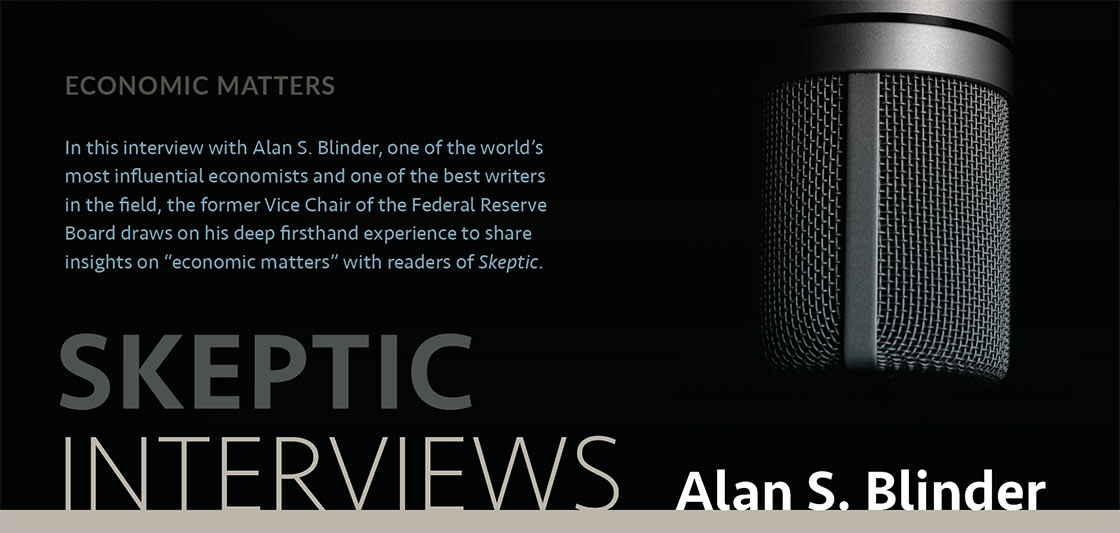
In this interview with Alan S. Blinder, one of the world’s most influential economists and one of the best writers in the field, the former Vice Chair of the Federal Reserve Board draws on his deep firsthand experience to share insights on “economic matters” with readers of Skeptic.
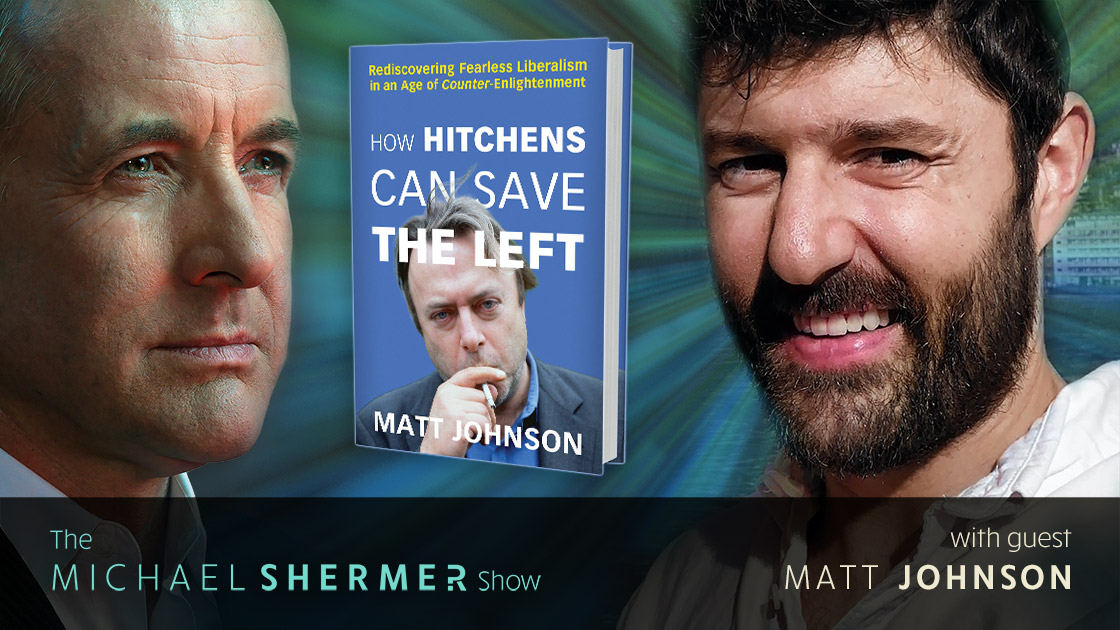
Shermer and Johnson discuss: Hitchens on free expression, identity politics, radicalism, interventionism, authoritarianism, patriotism, internationalism, America and Liberalism, reparations, religion, and death • identity politics • hostility to free speech • why Hitch did not become a neoconservative, warmonger, or imperialist • Enlightenment Liberalism • Trump and the division of the right • Hitchens on the precursors to Trump • Putin and Russian nationalism.
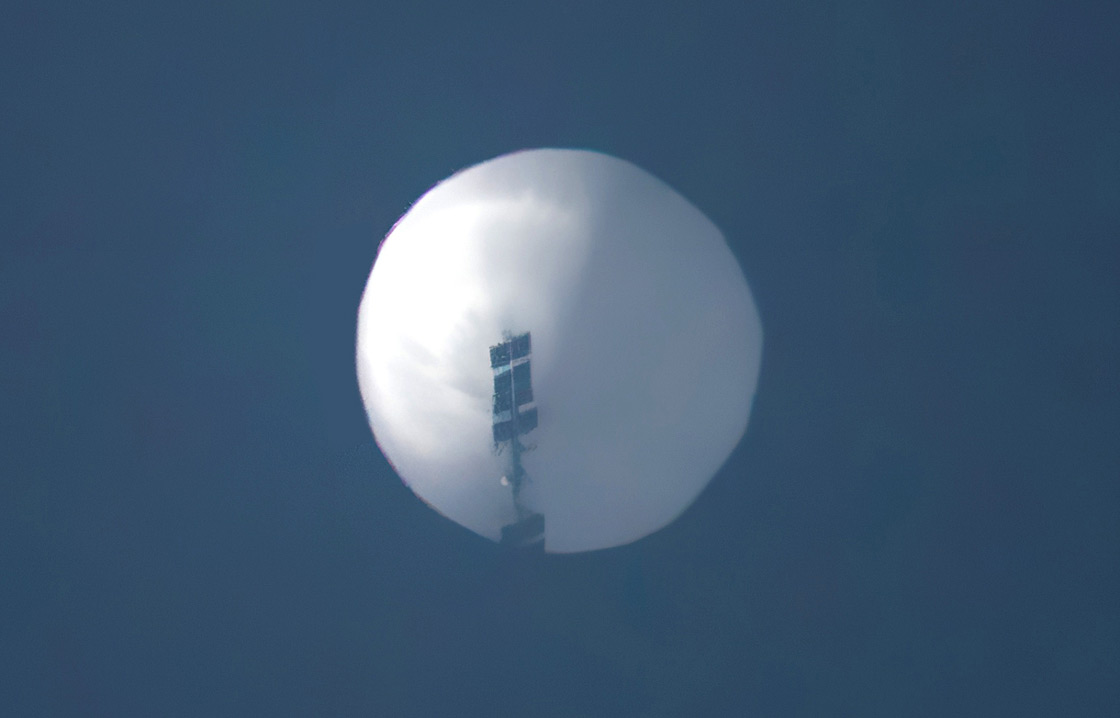
A string of mysterious balloon sightings generates fear and excitement as thousands of anxious residents scan the skies to glimpse floating objects that are believed to emanate from a hostile foreign power. The Chinese spy balloon scare of 2023? No, the balloon panic of 1892 in Russian-occupied Poland. In this analysis of the history of balloon sightings Robert Bartholomew puts the Chinese spy balloon incident into perspective and shows why more such sightings are expected.
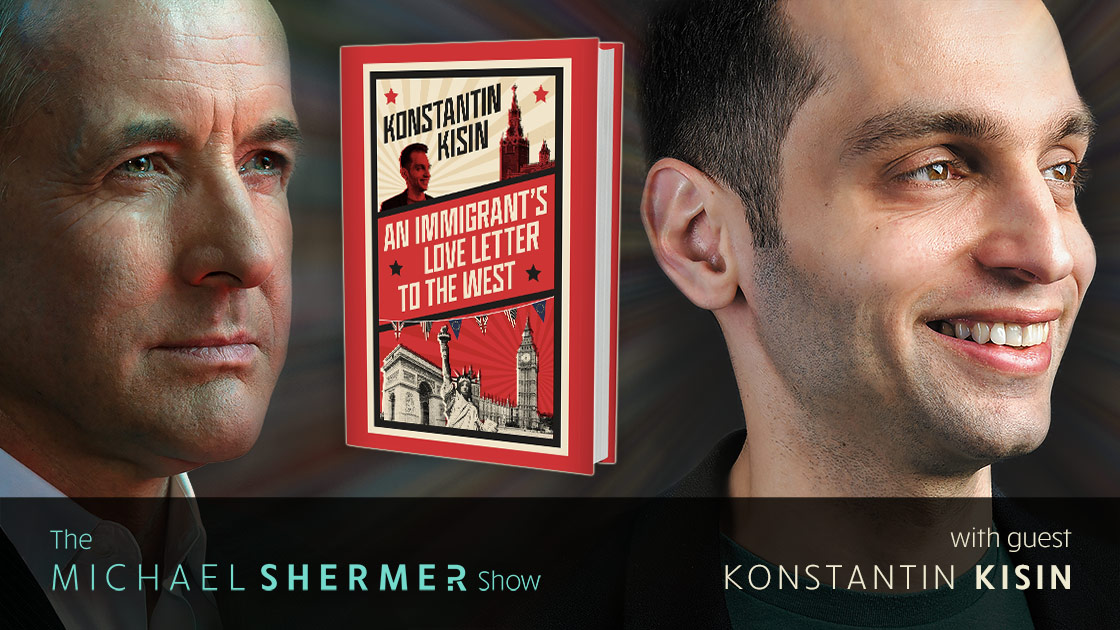
Shermer and Kisin discuss: growing up in Russia • “The Talk” Russian parents give their children • What is the “West” and how do Russians view it • Should Whites feel some guilt for slavery, racism, misogyny, bigotry, etc.? • systemic racism: criminal justice, housing, employment, income, wealth • Critical Race Theory (CRT) • immigration • free, private, and public speech • how language is used to distort truth • the origin of “political correctness” • journalism vs. activism •…
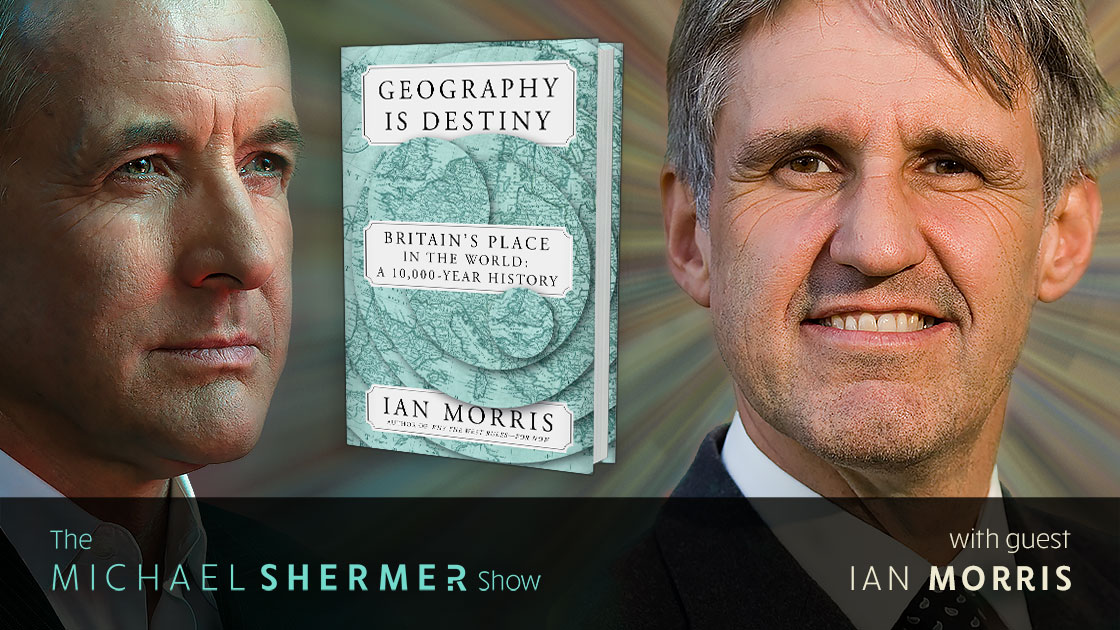
In this conversation on deep time and big history, Shermer and Morris discuss the history of Big History, the future of energy and civilization, China and the future of energy and political power, what Britain was like 8000 years ago, the major transitions in British history, counterfactual history, slavery and the abolition of the slave trade, the role of ideas in history (civil rights, rule of law, justice, etc.), reparations and making right the wrongs of the past.
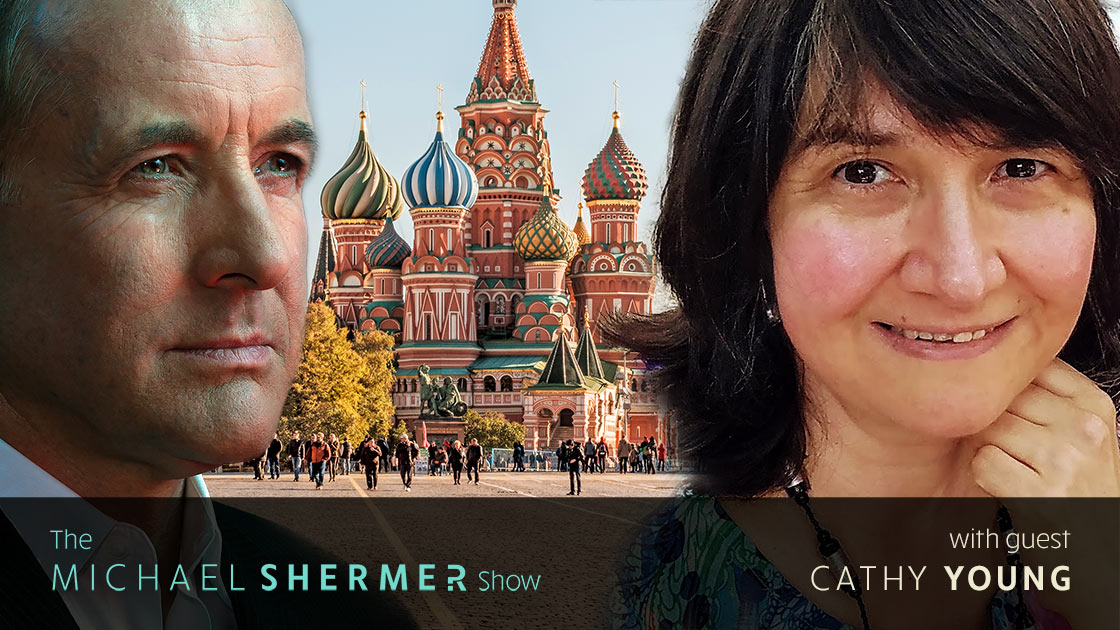
Michael Shermer speaks with Cathy Young, a cultural studies fellow at the Cato Institute. She writes on a wide variety of cultural and political issues, including gender issues (equal opportunity in the workplace, sexual harassment policy, sexual assault and domestic violence law, child custody, etc.), freedom of speech and intellectual tolerance, diversity, education, and perspectives on American history, as well as Russia and U.S.-Russian relations.
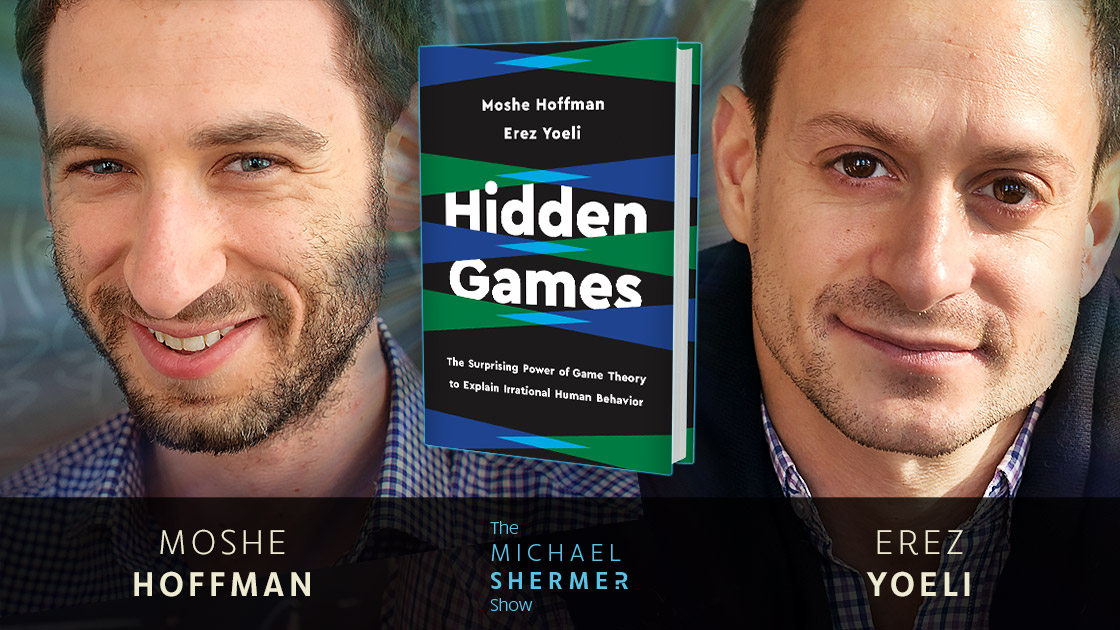
Moshe Hoffman is a research scientist at the Max Planck Institute for Evolutionary Biology whose research focuses on using game theory and models of learning. Erez Yoeli is a research scientist at MIT’s Sloan School of Management, whose research focuses on altruism: understanding how it works and how to promote it.
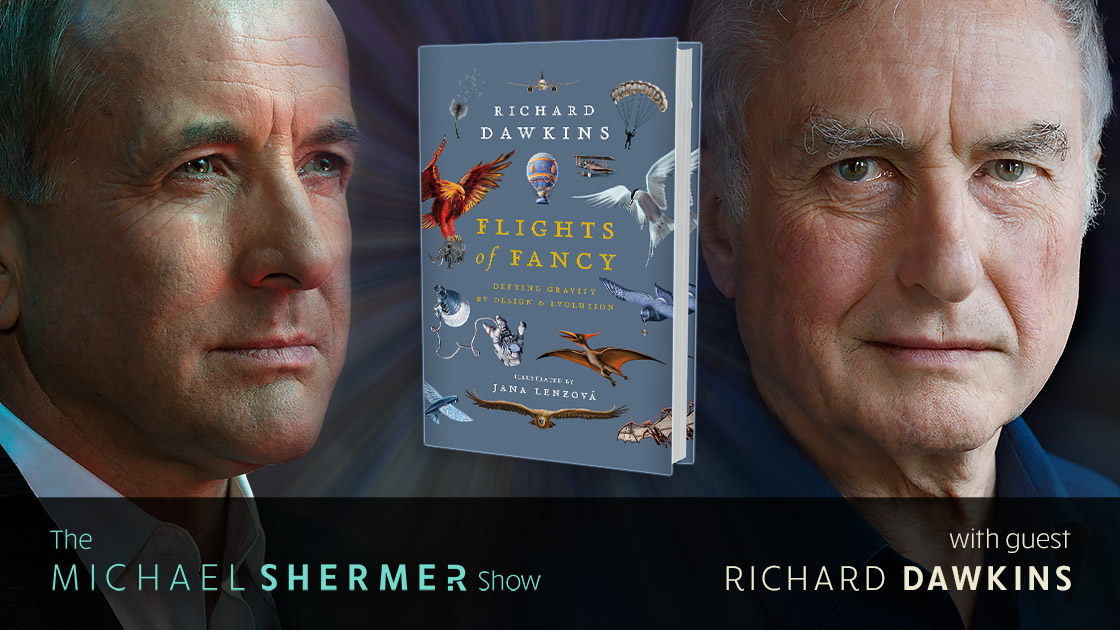
Michael Shermer speaks with Richard Dawkins about his new book Flights of Fancy: Defying Gravity by Design and Evolution. They also discuss: nationalism; Russian revanchism; the recent rise of authoritarianism and autocracies; U.S. acceptance of the theory of evolution surpassing 50%; E. O. Wilson; and more…
Education reform researcher and advocate Chris Edwards explains the problem with the U.S. public education system and considers possible solutions. PLUS: Michael Shermer speaks with Christopher Blattman about his new book Why We Fight: The Roots of War and the Paths to Peace.
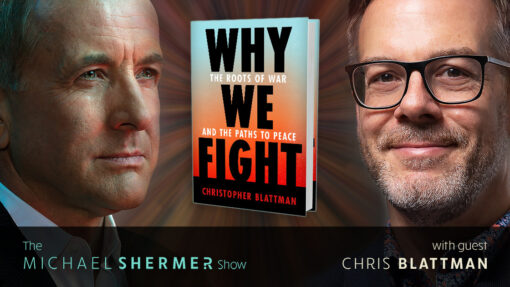
Shermer and Blattman discuss: Putin, Russia, and Ukraine • game theory and violent conflict • 5 Reasons for conflict and war • common elements of conflict • U.S. foreign policy and its consequences • human nature and conflict: are we wired to fight or do environments push us into conflicts? • cooperation vs. competition, and more…
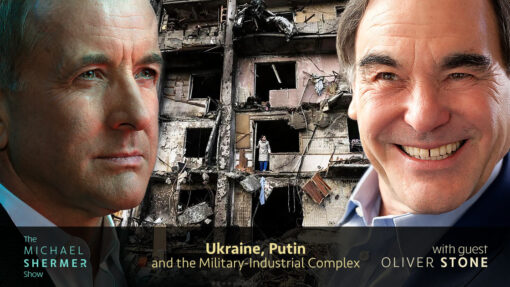
Michael Shermer speaks with Oliver Stone about Ukraine, Putin, and the military-industrial complex.
Mel Konner, in response to Bert Hölldobler’s defense of E. O. Wilson, reinforces the point that Wilson’s defense of Philippe Rushton was done out of concerns about academic freedom; PLUS: Michael Shermer speaks with Oliver Stone about Ukraine, Putin, and the military-industrial complex.
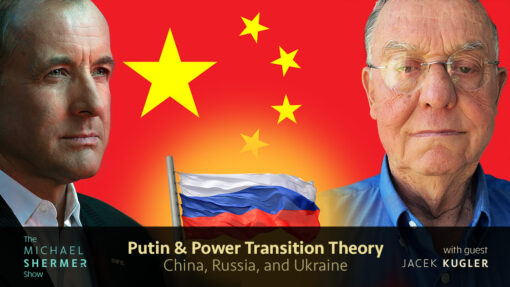
Michael Shermer and Dr. Jacek Kugler, the Elisabeth Helm Rosecrans Professor of International Relations in the Department of Politics and Policy at Claremont Graduate University, discuss Power Transition Theory. According to the theory, developed by Dr. Kugler, an even distribution of political, economic, and military capabilities between contending groups of states is likely to increase the probability of war; peace is preserved best when there is an imbalance of national capabilities between disadvantaged and advantaged nations.
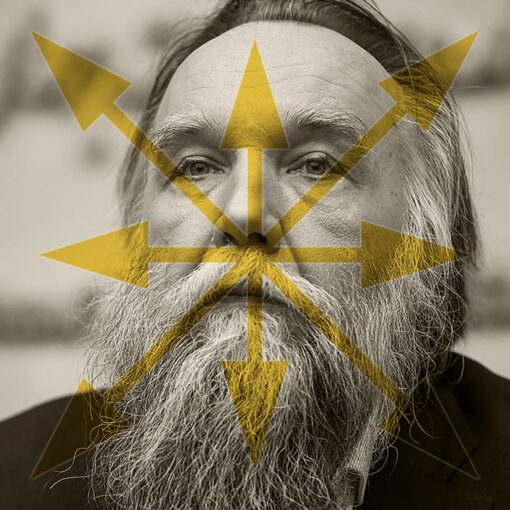
Robert Zubrin takes a renewed look at his 2015 Skeptic article about the Mystical High Priest of Russian Fascism, Alexander Dugin, in light of Putin’s recent, full-scale invasion of Ukraine. It will strike readers as all too prescient.
Michael Shermer speaks with Professor of International Relations, Dr. Jacek Kugler, about his Power Transition Theory as it pertains to China, Russia, and Ukraine. PLUS: Robert Zubrin takes a renewed look at his 2015 Skeptic article about the Mystical High Priest of Russian Fascism, Alexander Dugin, in light of Putin’s recent, full-scale invasion of Ukraine.

Michael Shermer speaks with political demographer, former demographics consultant to the United States Department of Defense, and author of The Future Faces of War, Jennifer Sciubba, about her new 8 Billion and Counting.
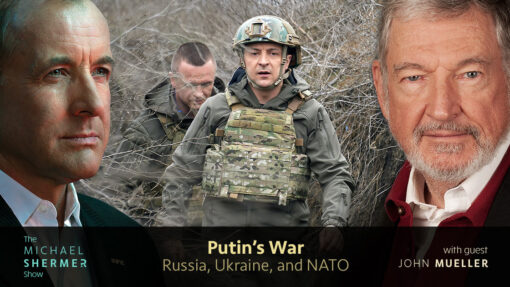
Shermer speaks with renowned Ohio State University political scientist John Mueller about the ongoing crisis in Ukraine and what we might expect from Putin’s Russia in the coming weeks, months, and years, along with Dr. Mueller’s outline for how to end the current conflict and compromise with Putin.
Political scientist and war historian John Mueller argues that Putin’s war in Ukraine could have been avoided and can still be stopped through compromise since NATO was not going to accept Ukraine as a member for decades anyway, and Crimea will be returned to Ukraine about the time Texas is returned to Mexico.
Shermer speaks with renowned Ohio State University political scientist John Mueller, author of The Stupidity of War, about the ongoing crisis in Ukraine and what we might expect from Putin’s Russia in the coming weeks, months, and years, along with Dr. Mueller’s outline for how to end the current conflict and compromise with Putin.
NEXT →























